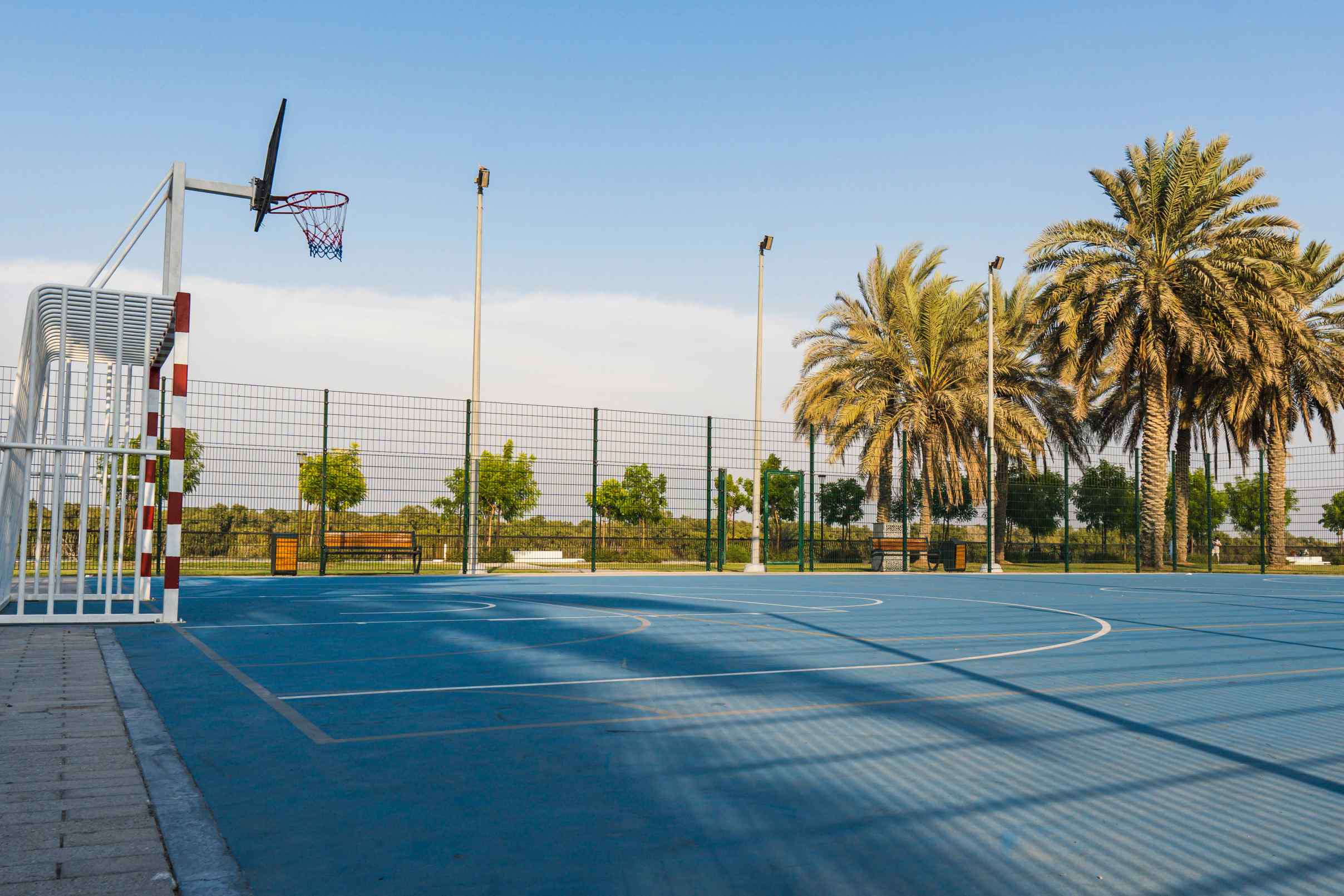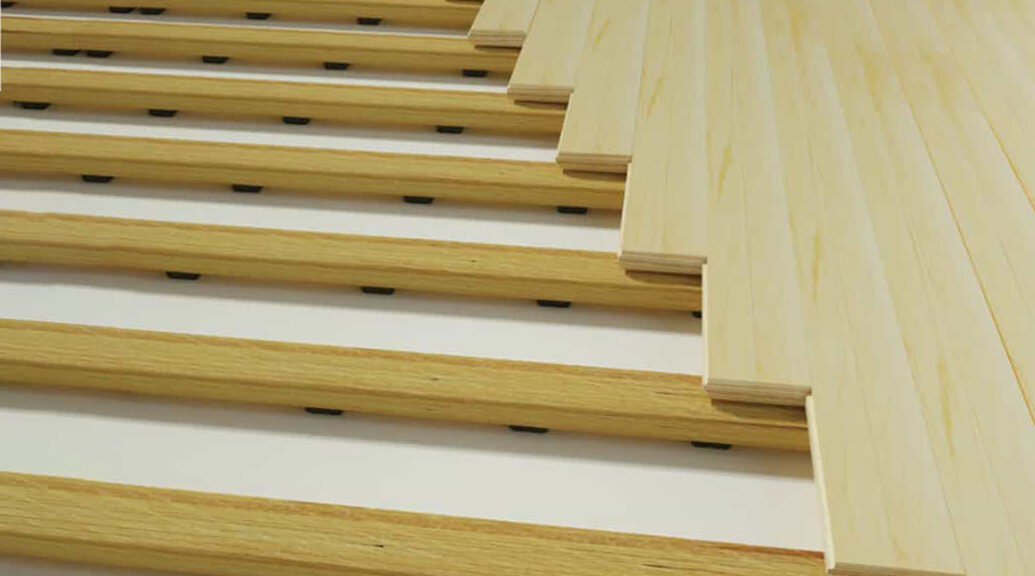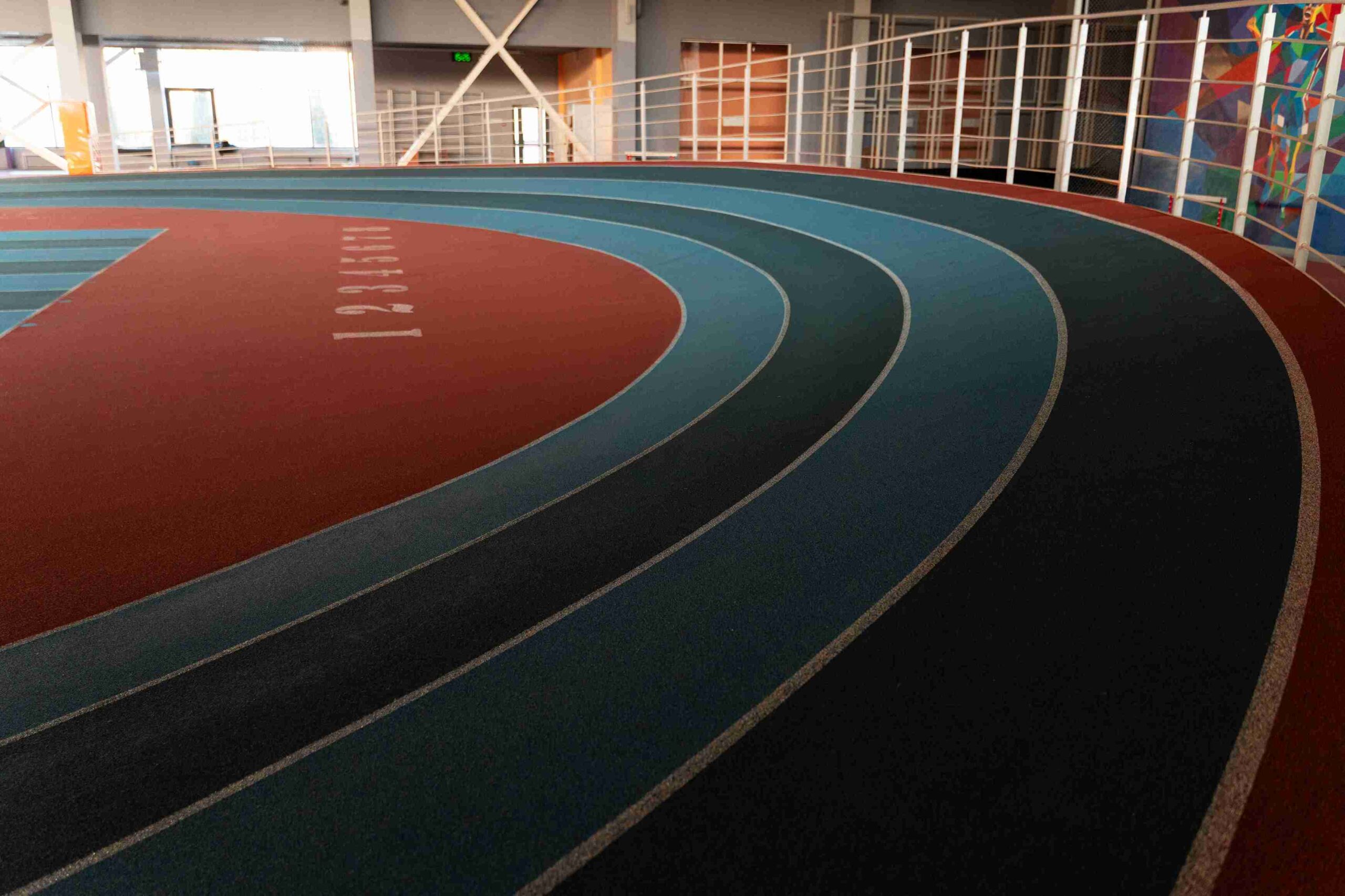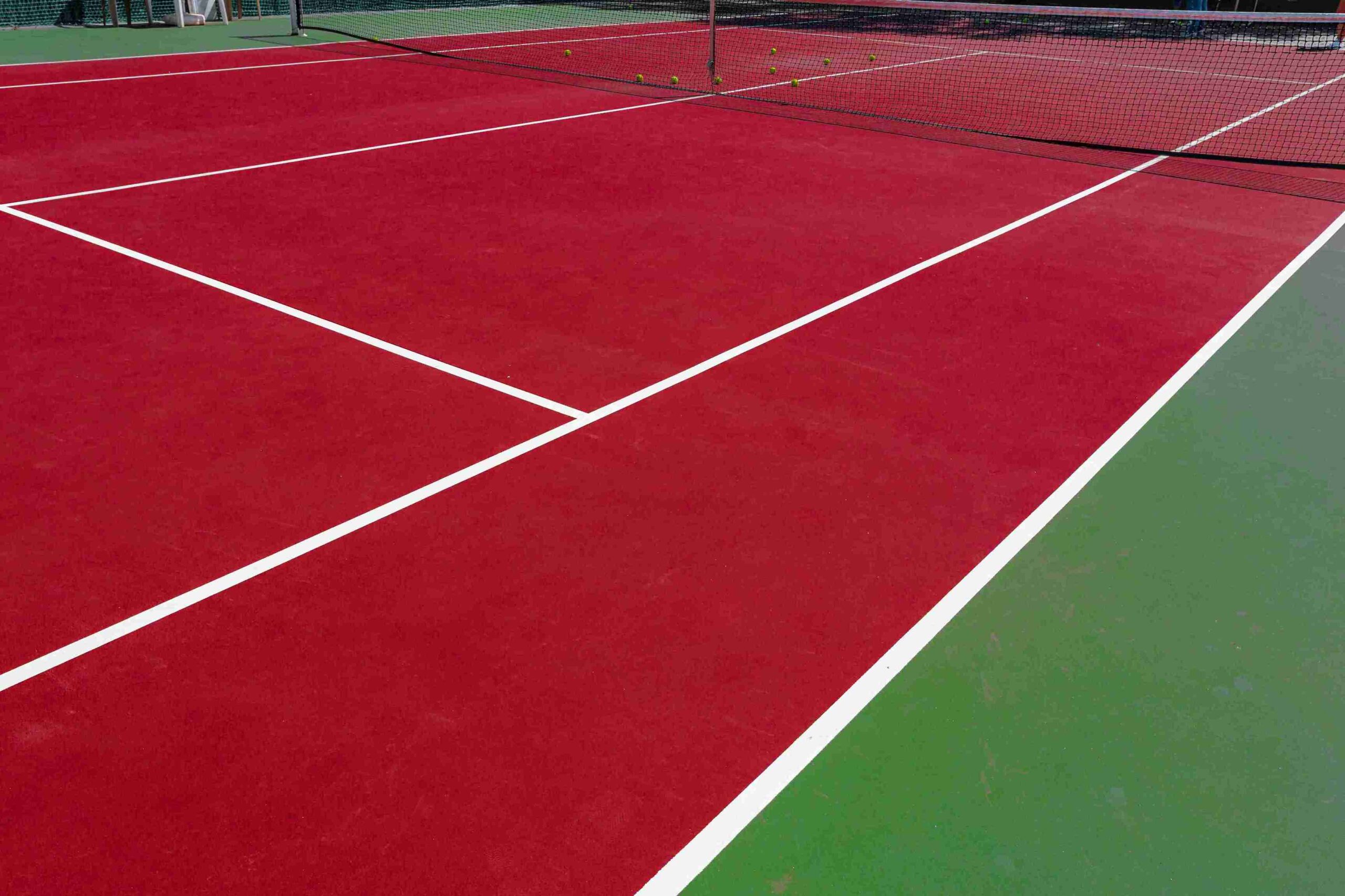In sports, the absolute last thing anyone worries about is flooring—but it’s one of the most important. If you’re responsible for a school gym or a public sports facility, the floor can make a big difference in safety, performance, and overall experience.
That’s where PP Interlocking Floors steps in.
Made of durable polypropylene (PP), these snap-fit tiles are quickly becoming the first contact of choice for schools and clubs across the country. But why? And how do they compare with other types of floor coverings, such as wood, PVC, or rubber?
Let’s take a stride into the world of PP Interlocking Floors and see why they’re the number one preference for indoor and outdoor play areas.
What Are PP Interlocking Floors and How Do They Work?
To know why PP interlocking floors are so popular, it is a good idea to know what they are.
PP Interlocking Floors are interlocking floor systems made of a long-lasting plastic material called polypropylene. They are made up of separate tiles that click together like pieces of a puzzle. No nails or glue are needed—just place the tiles on a smooth surface and snap them together. That’s all.
Since they are modular, you simply take them out, swap them, or insert more whenever you want. This is particularly convenient for schools and clubs that must rearrange their setup over time.
- PP has the following reputation:
- Lightweight
- Hard and abrasion-resistant
- Resistant to chemicals and moisture
- UV-stable (so it won’t break down in sunlight)
With all these qualities, it is little surprise then that PP interlocking floors are so popular. But how do they cope with real sporting conditions?
Why Schools and Sports Clubs Love PP Interlocking Floors
It’s simple for a product to sound good on paper. But on a school gym floor or a sports club floor, flooring has to endure real use—running, jumping, sweating, weather, etc.
So why are schools and clubs resorting to PP Interlocking Floors over traditional surfaces?
Let’s take a closer look.
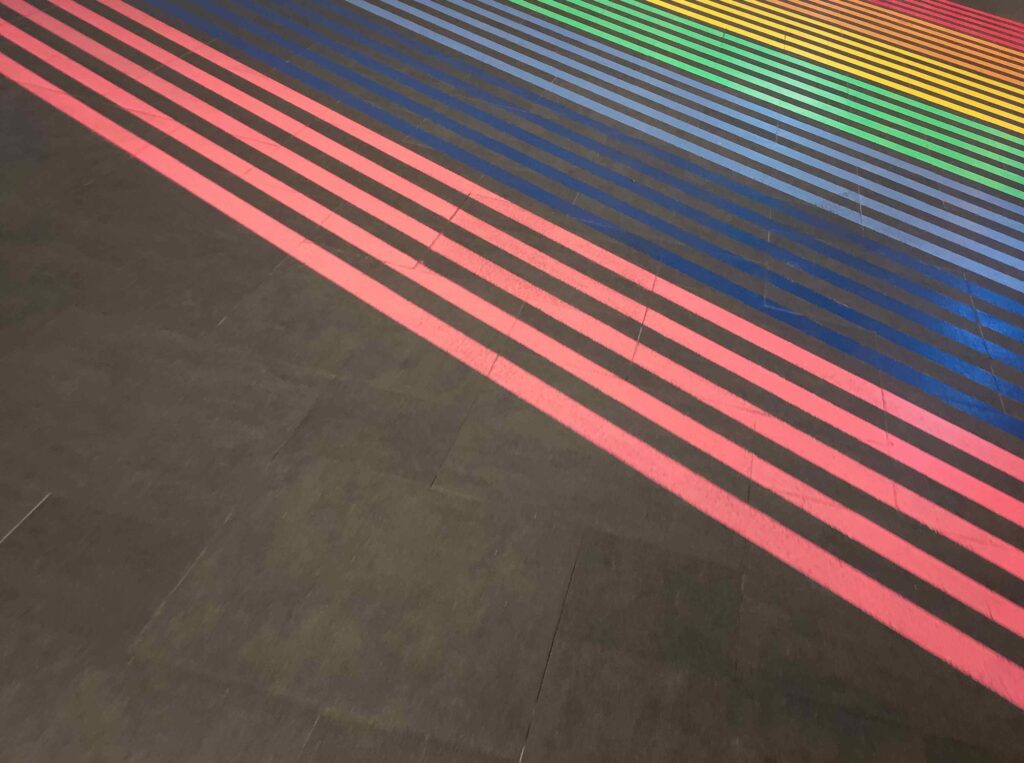

Rain or Shine Safe Play
Safety is not a laughing matter—especially in schools. Kids run, slide, fall, and bounce back. Flooring should help to protect from injury, not add to the danger.
PP Interlocking Floors have inherent shock absorption. That is, they absorb shock and minimize joint stress in sports such as basketball, volleyball, or physical education. And the surfaces are slip-resistant, even when wet.
And since PP is waterproof, these tiles will not warp or slide during rainy or wet weather. Schools and clubs can use them indoors or outdoors without weather restrictions.
Long-Lasting Enough to Withstand Rough Handling
From gym class to Saturday tournaments, sports flooring gets a workout. Perhaps one of the greatest advantages of PP Interlocking Floors is that they are so durable.
These tiles are constructed to withstand heavy foot traffic, ball bounce, and equipment roll without denting or cracking. They’re scratch-resistant, fade-resistant, and chemical-resistant to most chemicals—ideal for dirty locker rooms or outdoor tennis courts.
Even better. If you break one tile, you don’t have to replace the whole floor. Just replace that single tile, and you’re good to go.
Where then do PP Interlocking Floors stand in comparison with the opposition?
Comparing PP Interlocking Floors to Other Sports Flooring Solutions
There are many hard floor coverings to choose from—PVC, wood, rubber, and the like. So why is PP Interlocking Flooring special?
Let’s break it down.
PP vs PVC
PVC floor is padded and pliable and is most often used indoors. It is walkable, but not for outdoor use. PVC deteriorates or warps if it is subjected to water or sunlight in the long run.
PP Interlocking Floors, however, are suited for both indoor and outdoor applications. They’re more durable, weather-resistant, and not easily damaged by the UV rays.
PP and Rubber
Rubber floors are ideal for weight rooms or high-impact rooms because they can be shock-absorbing. They can be heavy, expensive, and more labor-intensive to install or maintain, nevertheless.
PP interlocking tiles are lighter, easier to install, and just as effective for most club or school sports.
PP v Wood
Wood floors are nice, but costly and difficult to replace. They are not for the outdoors or for spaces that may be subject to water.
On the other hand, PP Interlocking Floors are extremely low maintenance. They do not need polishing, sanding, or sealing, and can be used in any weather conditions.
If you’re still uncertain as to why PP interlocking floors are even superior, let’s explain their benefits more comprehensively.
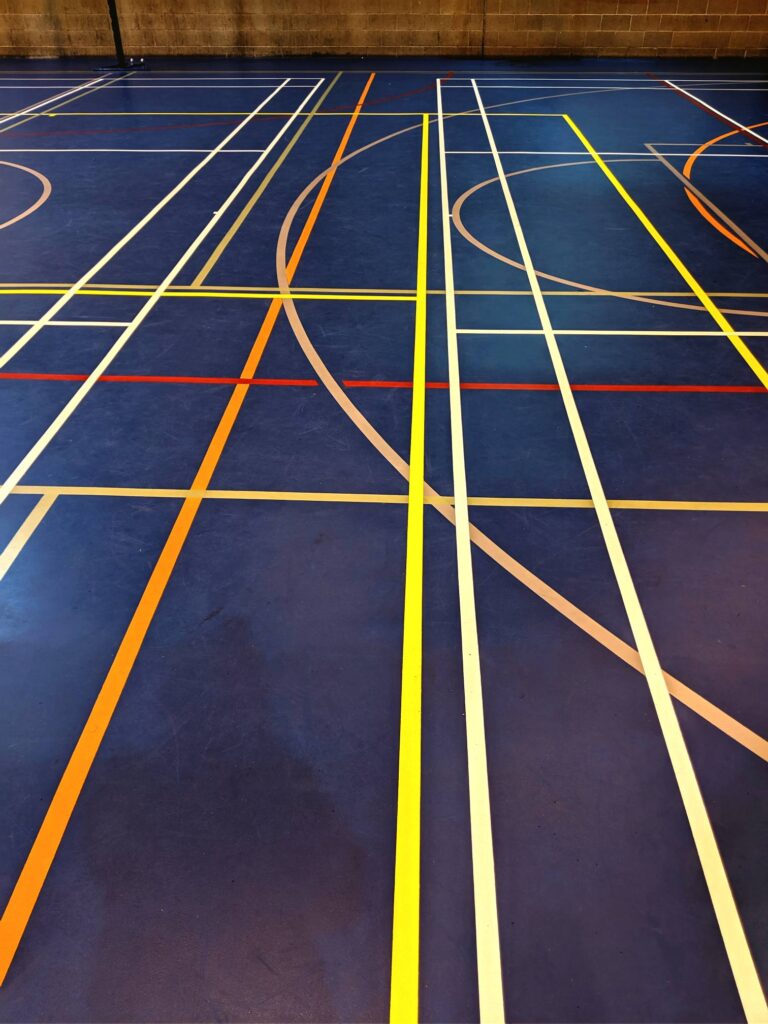

What Makes a Difference: Benefits
While choosing sports flooring, cost, maintenance, and versatility are considerations. Here are some reasons why PP Interlocking Floors are increasingly winning the hearts of facility managers and coaches.
Clean-Up Is a Breeze
One of the biggest complaints about gym flooring is that it is just so hard to clean. PP tiles are not porous, so they won’t absorb spills, sweat, or dirt. Just mop them or hose them down—does it get any easier than that?.
This is an enormous advantage to schools, whose janitors and employees already have their hands full.
Affordable Without Sacrificing Quality
Replacing or renovating flooring is usually costly. But with PP interlocking floors, no one needs to go broke.
Installation is quick and easy, so you wind up saving on labor. And because you can replace one tile at a time, you do not have to resurface the entire floor when something fails.
In addition, they are durable. You won’t have to replace them after five or so years, which is cost-effective in the long term.
Flexible and Modular
Sports requirements are constantly changing. A school may move a basketball court to a multipurpose room, or a club may have to add a court. PP interlocking flooring consists of modules, and you can remove, add, or rearrange tiles as required.
Alright, now let’s talk about where to look for the finest version of this floor—and why VMKON leads the pack.
Why Choose VMKON for Your Sports Flooring Needs
There are numerous suppliers of modular sports floors. Not every PP interlocking floor is created equal, however.
VMKON has become a name to count on for schools, clubs, and facilities around the globe. And why is it?
- Advanced Tile Technology: VMKON designs floors that perform better. Its tiles are designed specifically to provide grip, bounce, and comfort.
- Custom Solutions: Does your company need a particular color, size, or layout? VMKON can assist with tailoring a solution to your space and requirements.
- Professional support: From first quote to final installation, VMKON’s professional support team is there to guide you along the way.
- Recommended by Professionals: Already, clubs and schools use VMKON floors in the futsal courts, basketball courts, tennis courts, and multipurpose gyms.
By choosing VMKON, you’re not just buying flooring—you’re buying the expertise of a company that knows the unique needs of school and sports facilities.
Conclusion
If you’re here, you already know that PP Interlocking Floors provides a smart, safe, and cost-effective solution for clubs or schools of any type. They’re durable, easy to install, easy to clean, and built for serious play—indoors or outdoors.
In contrast to rubber, PVC, and wood, PP flooring is more functional and utilizable.
And with a reliable supplier like VMKON, you can be assured that your investment will pay dividends for generations to come.
Need assistance in selecting the most appropriate flooring for your sports club or school? Reach out to VMKON. We’re here to give you the answers, weigh your options, and point you in the right direction with the best sports flooring for you—no high-pressure sales—just honest advice from people who care.
Frequently Asked Questions
1. What does “PP” stand for in PP Interlocking Floors?
PP is a generic abbreviation for polypropylene, which is a tough and resilient plastic used in most sports flooring systems.
2. Are PP Interlocking Floors safe for children?
Yes, they are shock-absorbing and anti-slip surfaced, thus safe for kids to use in schools and clubs.
3. PP Interlocking Floors can be used outdoors?
As a matter of fact! They’re UV-stable and weather-resistant, so that they won’t crack or discolour in the sun or rain.
4. How are tiles connected?
The tiles are locked in place by a simple locking mechanism, much like a jigsaw puzzle. No nails or glue are needed.
5. Are they hard to clean?
Not at all. PP floors are not permeable and can be mopped, broomed, or hosed.
6. Which sports are playable on PP Interlocking Floors?
They are well-suited for sports like basketball, volleyball, futsal, tennis, and several others.
7. Can the damaged tiles be replaced?
Yes. You can replace individual tiles without having to tear up the whole floor.
8. How is installation time calculated?
Installation is simple and fast, and may only take a few hours based on the size of the area.
9. Are PP Interlocking Floors costly?
They are cost-saving in the long run since they require low maintenance and last long.
10. Where can good-quality PP Interlocking Floors be found?
You may obtain professional guidance and top-notch PP Interlocking Floor solutions for schools and clubs from VMKON.

